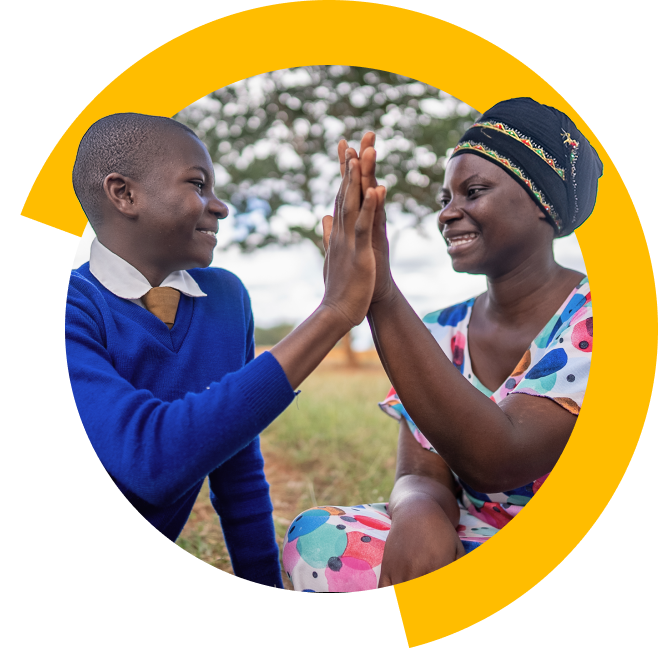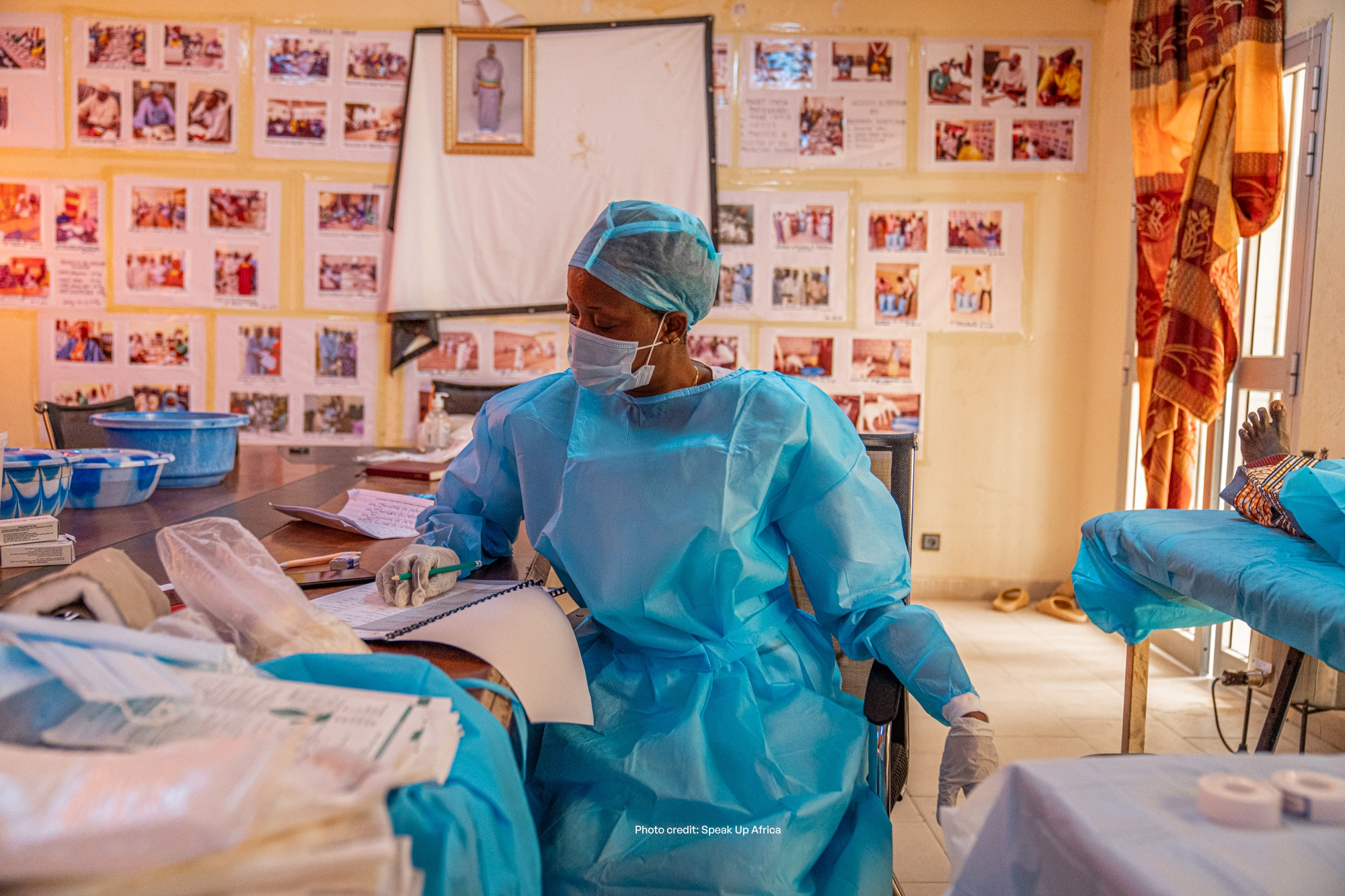
It is also why, throughout 2024, we intensified our efforts around creating deep and meaningful partnerships with African institutions and governments for systemic change. This had a particular focus on increasing the resilience of communities and elevating opportunities for girls to achieve their full potential and contribute to a thriving, self-determining Africa. Through these local partnerships, we can bring to scale innovative programmes and support each country in Africa as they navigate responding to opportunities and the intersecting challenges facing the continent, from climate shocks to fiscal squeezes and socio-economic inequality.
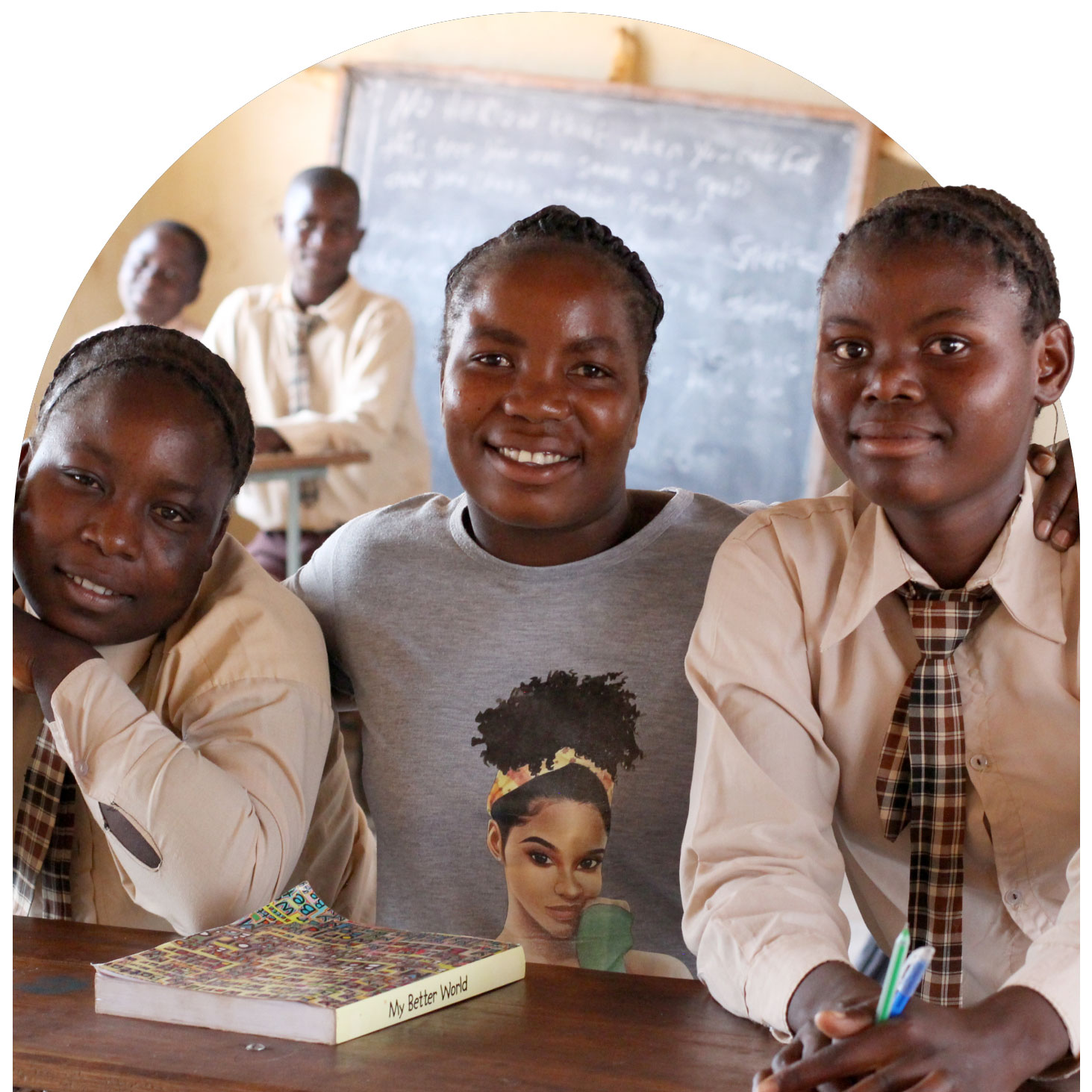
We recognise the malnutrition challenge as being one that has impacts beyond individual health, including having intergenerational effects on education, economic empowerment, gender inequality and poverty.
By partnering across Multilateral Development Banks (MDBs), governments and implementing organisations, we worked on our mission to break the cycle of malnutrition, focusing on ending school age hunger in 2024.
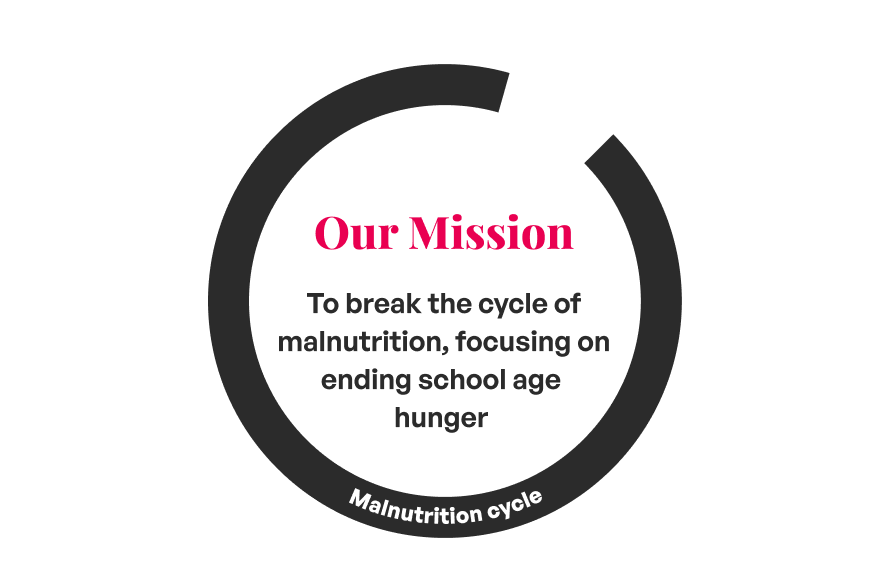

In 2024, a $100 million Ending School Age Hunger Fund was established with the Africa Development Bank to build a case for and unlock coordinated, sustainable and stable funding for school feeding programmes across Africa.
This marks a significant milestone in demonstrating how the partnership between philanthropies and MDBs could unlock additional financing for nutrition in Africa. It also creates a blueprint for other philanthropies to pool their resources and expertise in support of school feeding in Africa while ensuring sustainability and government ownership.

Food4Education (F4E) is a great example of a school feeding initiative, which demonstrates the model’s impact and scaling capacity.
By the end of 2024, F4E’s model had scaled across Kenya with 79.9 million nutritious school meals served, with support from CIFF’s catalytic funding, improving their educational and nutrition outcomes.
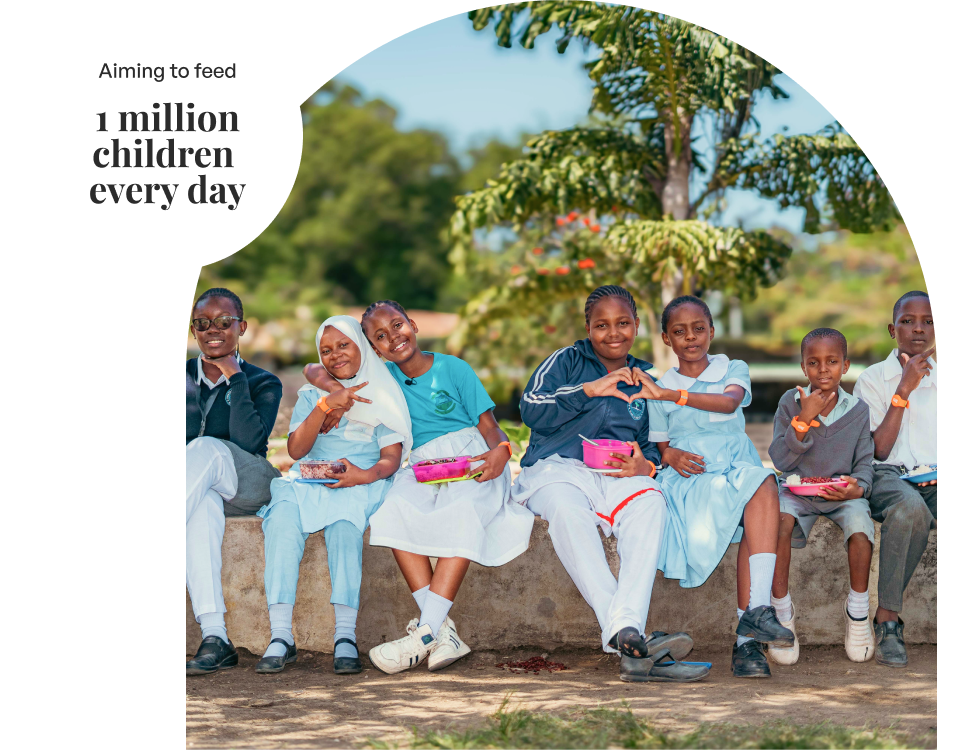
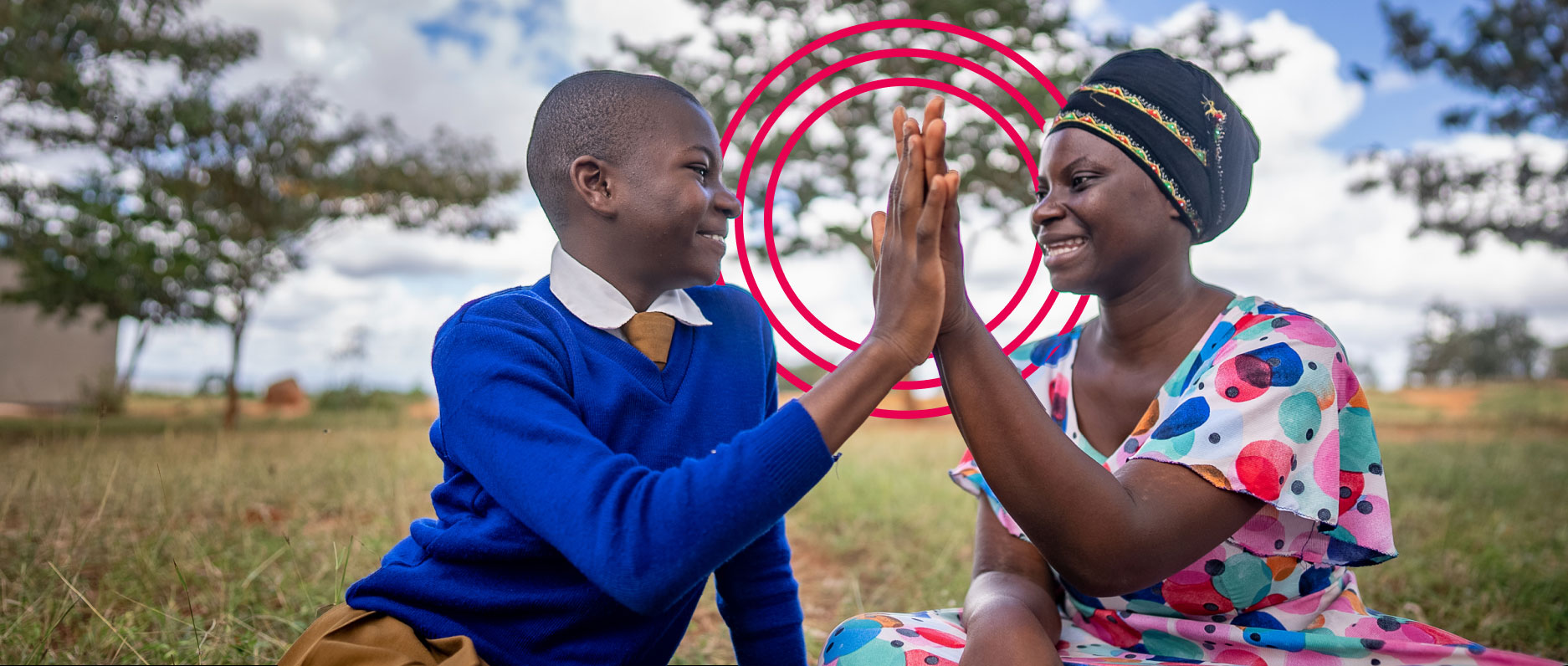
2024 was a landmark year in the fight against Neglected Tropical Diseases (NTDs) as we surpassed the halfway mark of the World Health Organisation’s 100-country target set for 2030.


Despite significant progress, NTD funding in Africa remains unpredictable and lacks long-term sustainability. Achieving elimination goals requires stable and sustained financing. In 2024, CIFF collaborated with Reaching the Last Mile and the Gates Foundation to establish the $500 million Reaching the Last Mile Fund (RLMF).
This programme targets the elimination of lymphatic filariasis and onchocerciasis (river blindness) and has already started implementation in 26 out of 39 countries in Africa, plus Yemen, since July 2024.
As a result of these targeted interventions and proven strategies, 60 million people across 990 districts no longer require treatment for various NTDs.
With just five years remaining until 2030, the year when WHO aims for 100 countries to have eliminated at least one NTD, we look forward to working alongside partners to help accelerate progress.

To move closer towards our globally agreed development goals, and for countries to reach their full potential, empowering, supporting and investing in women and girls is crucial.
Our engagements with governments across six countries have helped pave the way for scaling up initiatives and supporting long-term sustainability.


Our work with SHOFCO also continued as we entered into a partnership with Greenland Schools for Girls to support teen mothers to return to and complete secondary school.
Additionally, this partnership stopped 1,651 girls from dropping out of secondary school in Kilifi county through provision of bursaries, with 478 girls completing secondary school successfully.
During UNGA, the Africa Champions Group Convening brought together inspiring leaders committed to ending child marriage across the continent, with CIFF supporting the effort. As we look to the future, we look forward to working alongside leaders to help mobilise political will, provide resources for girls’ education, end child marriage, prevent sexual violence and reduce adolescent pregnancies at scale.
In 2024, CIFF joined ELMA Philanthropies, the Gates Foundation and Delta Philanthropies in establishing the Beginnings Fund, a philanthropic collaboration that will partner with African governments and organisations to accelerate progress in saving maternal and newborn lives on the continent.
The fund will invest in evidence-based, high-impact interventions to lower maternal and newborn mortality and stillbirths in 9 high-burden African countries.
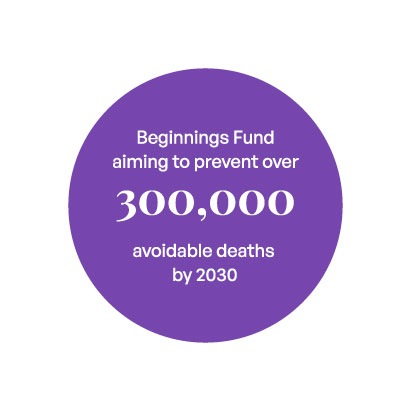
Across the continent of Africa we worked closely with partners on research, pilot projects, capacity building, and best practice sharing, as we continued to accelerate a just transition and drive clean and resilient growth – the key driver for rising prosperity across the continent.
JETPs support a self-defined pathway to economic growth and job creation, alongside a fossil fuel transition. However, JETP actions are complex, and unlocking clean growth pathways will continue to be both an opportunity and a challenge.

In 2024, Africa made significant steps in its clean growth agenda, with South Africa leading the way through its JETP.
This commitment to clean energy transition has also remained a priority in several countries including Nigeria, where ACF has been providing technical assistance. In 2024, the Nigerian Ministry of Finance established the Green Growth Economic Plan, which included establishing a Green Growth Office to institutionalise climate-focused strategies. The Nigeria Wind Energy Council last year launched a comprehensive wind resource database. This initiative is set to attract significant investments in Nigeria’s wind energy sector in the near and medium-term. In Senegal, ACF has partnered with civil society organisations to strengthen non-state actors capacities to effectively support Senegal’s JETP implementation by combining research, lessons and grassroots engagement.
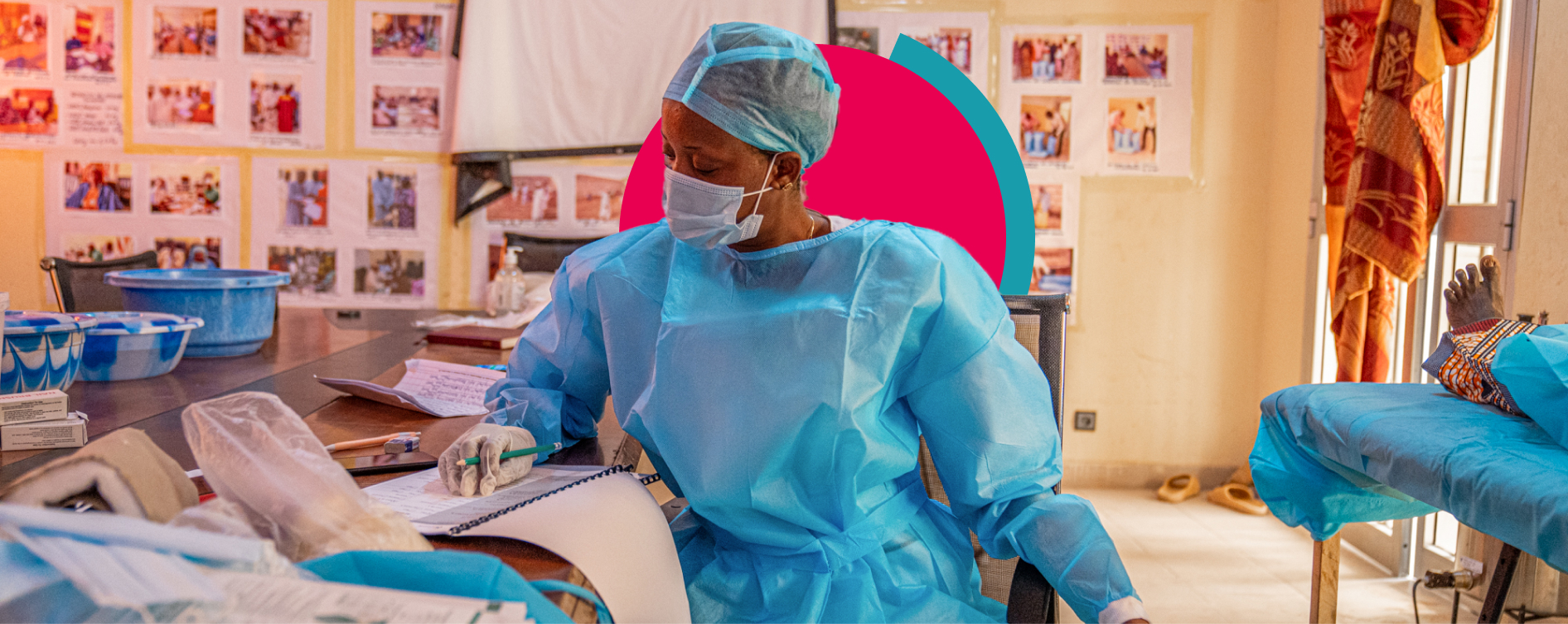
In 2024, CIFF worked with partners to launch two transformative platforms – the Africa Capital Hub (ACH) and the Africa Social Impact Exchange (ASIEx) – to redefine how development finance is structured, mobilised and deployed for impact across Africa.
The Africa Capital Hub, launched in partnership with UBS Optimus Foundation and Bankers Without Boundaries (The Investment Bank for Earth), has established dedicated resources in Kenya and Tanzania, with a near-term goal of mobilising $300 million in SDG-linked investments.


Meanwhile, the ASIEx addresses market fragmentation and financing inefficiencies in social investment. Designed to unlock catalytic funding and bridge Africa’s financing gap, ASIEx combines blended finance solutions, investment readiness, and impact measurement to direct capital towards scalable, high-impact solutions.
Through these initiatives, CIFF is helping to mobilise catalytic capital, unlock private and philanthropic investments, and ensure Africa-led, scalable financing solutions.
